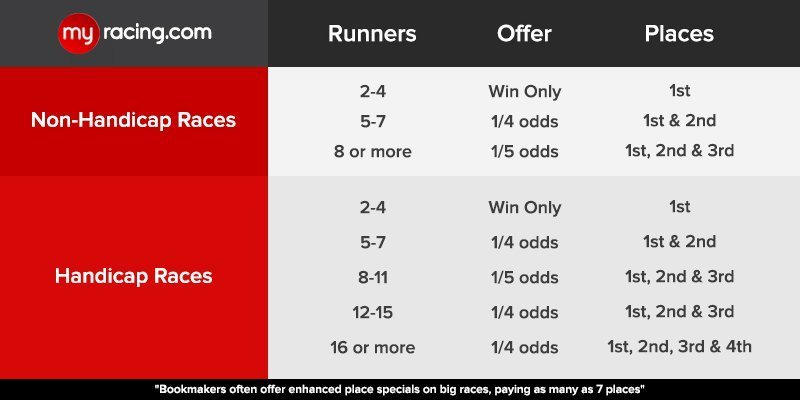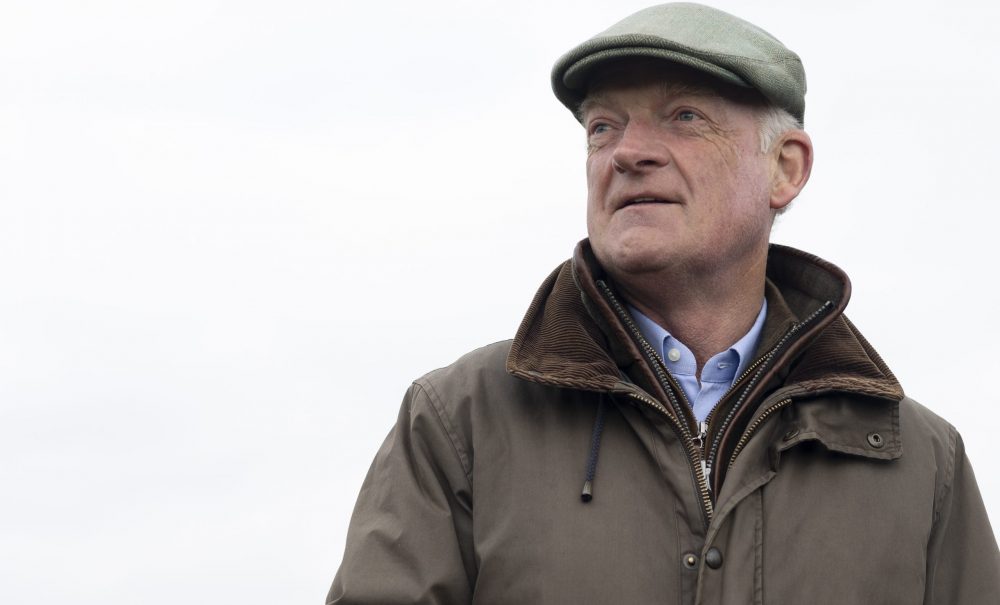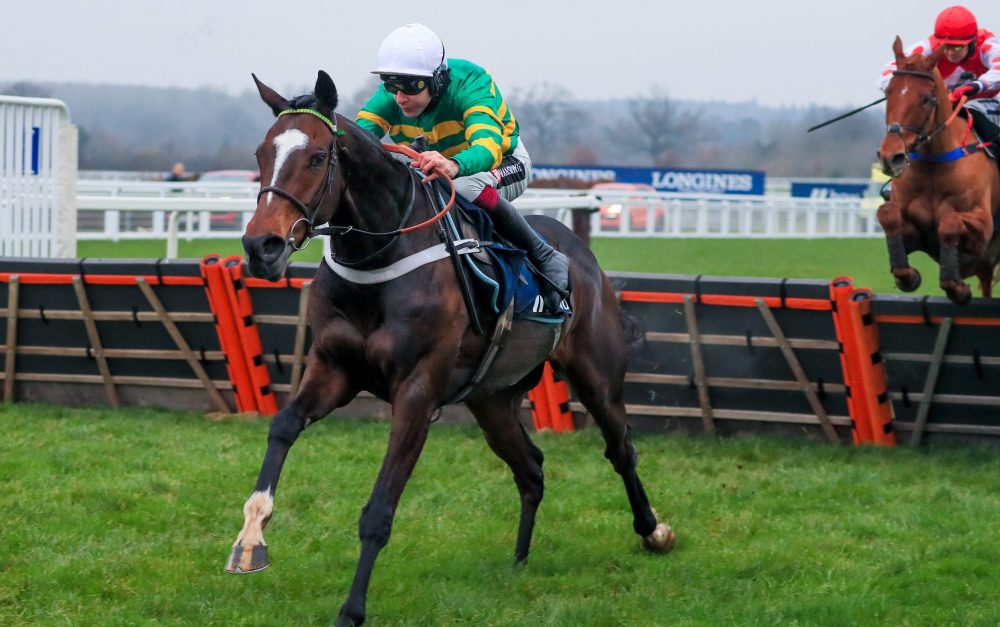Each Way Betting Explained
What does Each Way mean?
- Win money even if your horse doesn’t win, but finishes 2nd, 3rd or even 4th depending on the race!
- Available on many sports and ante post bets, not just football
- Get either 1/4th or 1/5th of the odds to win on your Each Way bet
- Effectively means putting on two bets; one to win, and one to “place”
What is Each Way betting?
Usually only offered in racing and ‘outright’ market contexts, an Each Way bet allows the customer to stake money on both their selection winning and finishing in one of the pre-set place positions (second, third etc.).
Why bet Each Way?
Each Way betting gives you a return even if your horse doesn’t win. For bigger price horses, this could still be at significant odds.
How does an Each Way bet work?
When you place an Each Way bet, you are actually placing two wagers for twice the stake. The first part of the bet concerns the win, and for you to see a return from this part of the wager, your selection must be declared the event’s winner.
Part two is named the ‘place’ bet and will produce a return if your selection either wins or finishes in one of the place positions. In horse racing, your nag finishing first or second in a field of between five and seven entries will see a place return. In a race with between eight and fifteen runners, all punters receive a place return should their selections be either first, second or third. Furthermore, it is not uncommon for bookmakers to pay out on horses finishing in fourth, fifth and even sixth place in even larger fields.
Depending on the size of the field and assuming your selection hasn’t won, your place return will be a fraction of the size of the return you would have received had your selection have been the event’s victor. This fraction will be displayed on the sportsbook web-page concerning the tie or race in question. Again, in horse racing the most common terms offered are 1/4th and 1/5th, whilst our previous FA Cup example is offered at 1/2.
It is unlikely that your bookie will pay out on three places (or 1/5) if a non-runner sends a field from eight to seven before the starter has waved his flag. Rather, near enough all turf accountants pay out in accordance with the number of gee gees at the start come race time and not how many were declared when the Each-Way bet was placed. You place your Each Way bet knowing that the payout terms may change subject to non-runners.
The key piece of advice would always be, however, to think before you choose to bet Each Way. It is less sensible to do so if your pick has odds of less than 5/1 as you would earn a lesser return than the amount you originally staked.
How many places are paid Each Way?
The number of places paid depends on the type of race and the number of runners, as shown by our table below:

What does “Win and Each Way” mean?
On a bookmaker website, you may see the phrase “Win and Each Way“, either on your betslip or above a market:
Win and Each Way simply means that these odds are available for both win bets and Each Way bets. You may also see this written as “Win / Each Way” or “Win or Each Way”. Other types of markets may be “Place Only” – you win your bet if the horse places (it doesn’t make a difference to the odds if they win or not) or “Without the Favourite”. This market means you ignore the favourite for the result, but is normally available “Win Only” – i.e. not Win and Each Way.
Each Way Betting Tips
We tip horses with prices up to 66/1 in our Singles, where just a place in the top three can return as much as 7/1. These are posted on our horse racing tips page every morning at 8.45am, and can be backed with a number of bookmakers in just one click.
How to place an Each Way bet
If your each-way wager is declared the winner, you will receive both the return for the win and the return for the place. Let’s take last season’s Grand National as an example. Say you backed the eventual winner, Pineau De Re, with £10 Each Way at 25/1. As the Grand National has a field of around 40 runners, the place return will be set at a quarter (1/4).
This means that you would have pocketed a return of £332.50 from your original £10 Each Way bet. Why? Because, remember, you receive a return for the horse winning:
£10 X (25/1 X 1) + your £10 stake = £260
and a return for the horse being placed:
£10 X (25/4 X 1) + your £10 stake = £72.50.
Had Richard Newland’s horse failed to win and instead only grabbed a place, you would not get your hands on the win return, rather only the £72.50 for achieving a place. Still not a bad earner from a £20 bet!
Frequently Asked Questions
Q: How many runners for Each Way?
A: There must be a minimum of five runners in a horse race for Each Way betting to be available
Q: How many runners for 4 places?
A: There must be at least 16 runners for there to be 4 places. Additionally, the race must be a handicap – so a Maiden race would be 3 places even with 30 runners!
Q: Is Each Way always 1st 2nd and 3rd?
A: Only if there are 8 or more runners (or 8 to 15 runners in a handicap race)
Q: How many runners in a race for an E/W bet to pay third place?
A: At least 8 runners.







